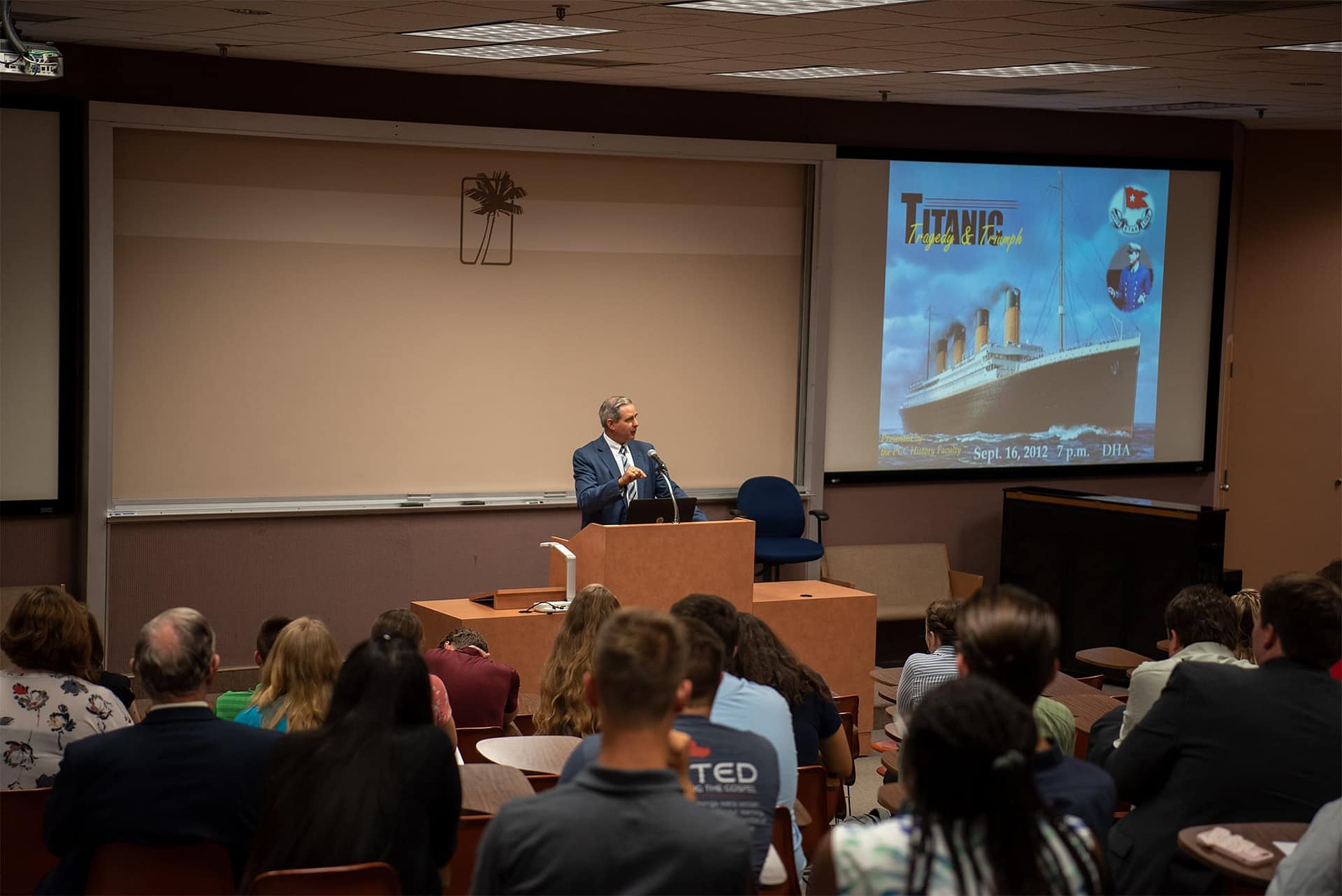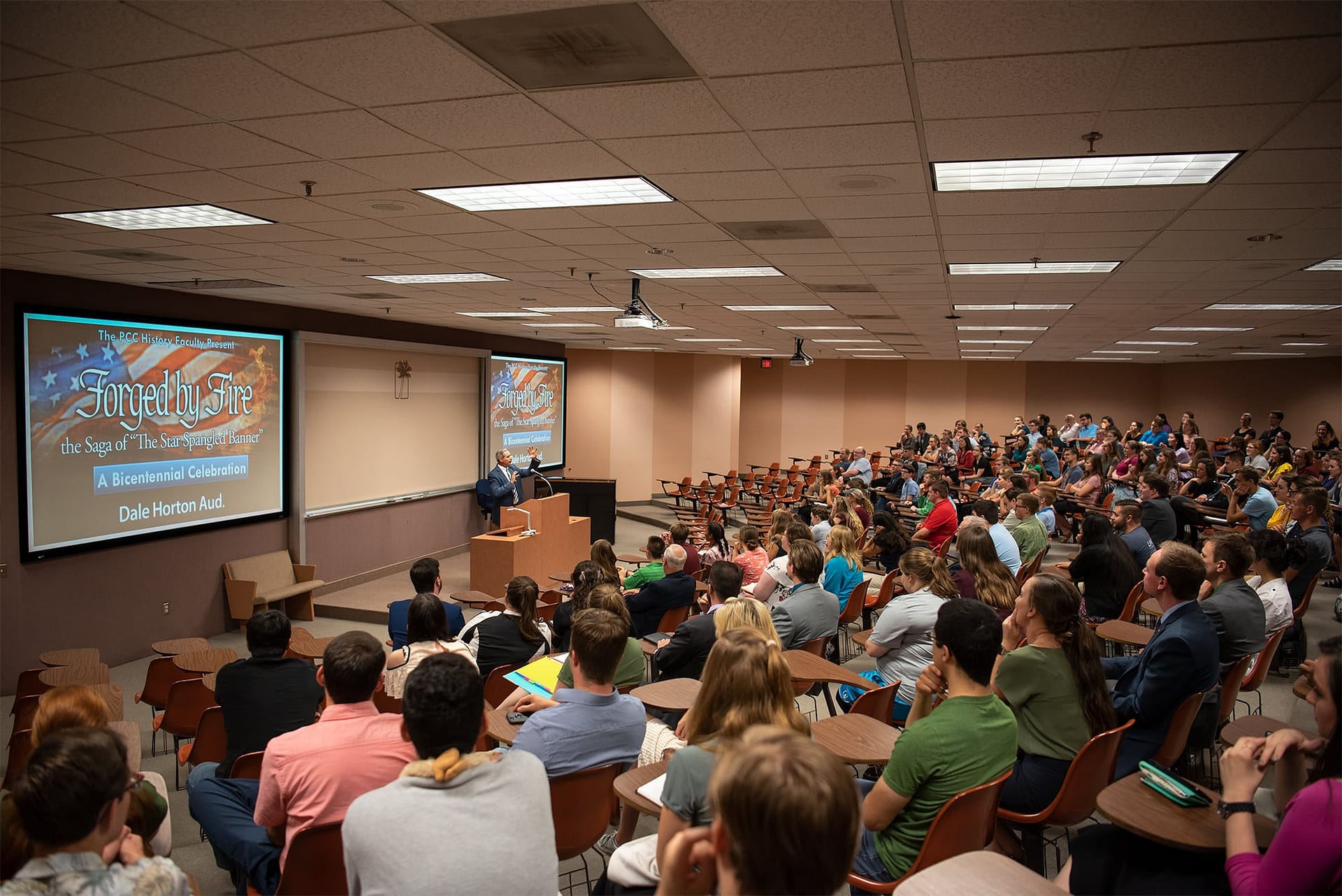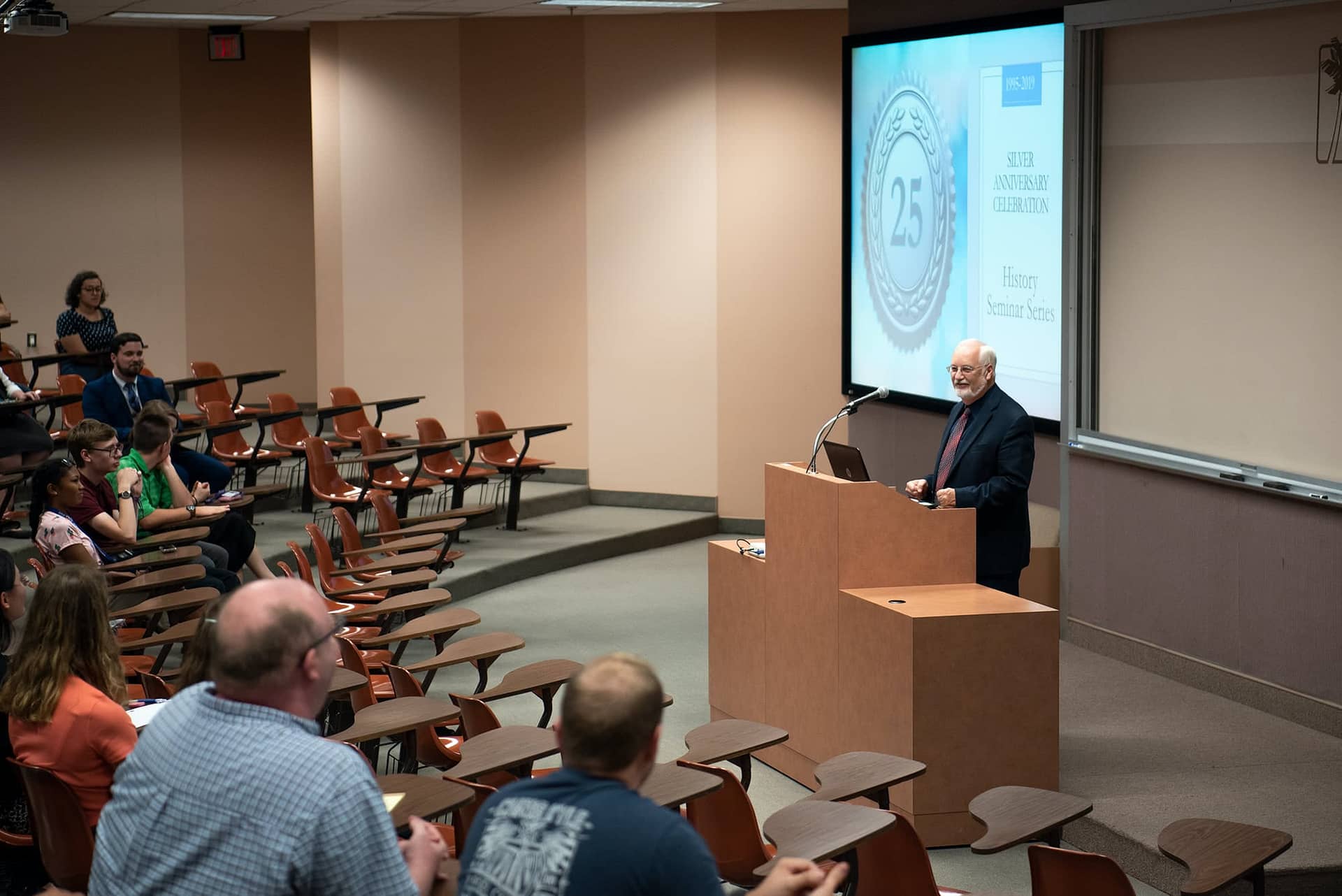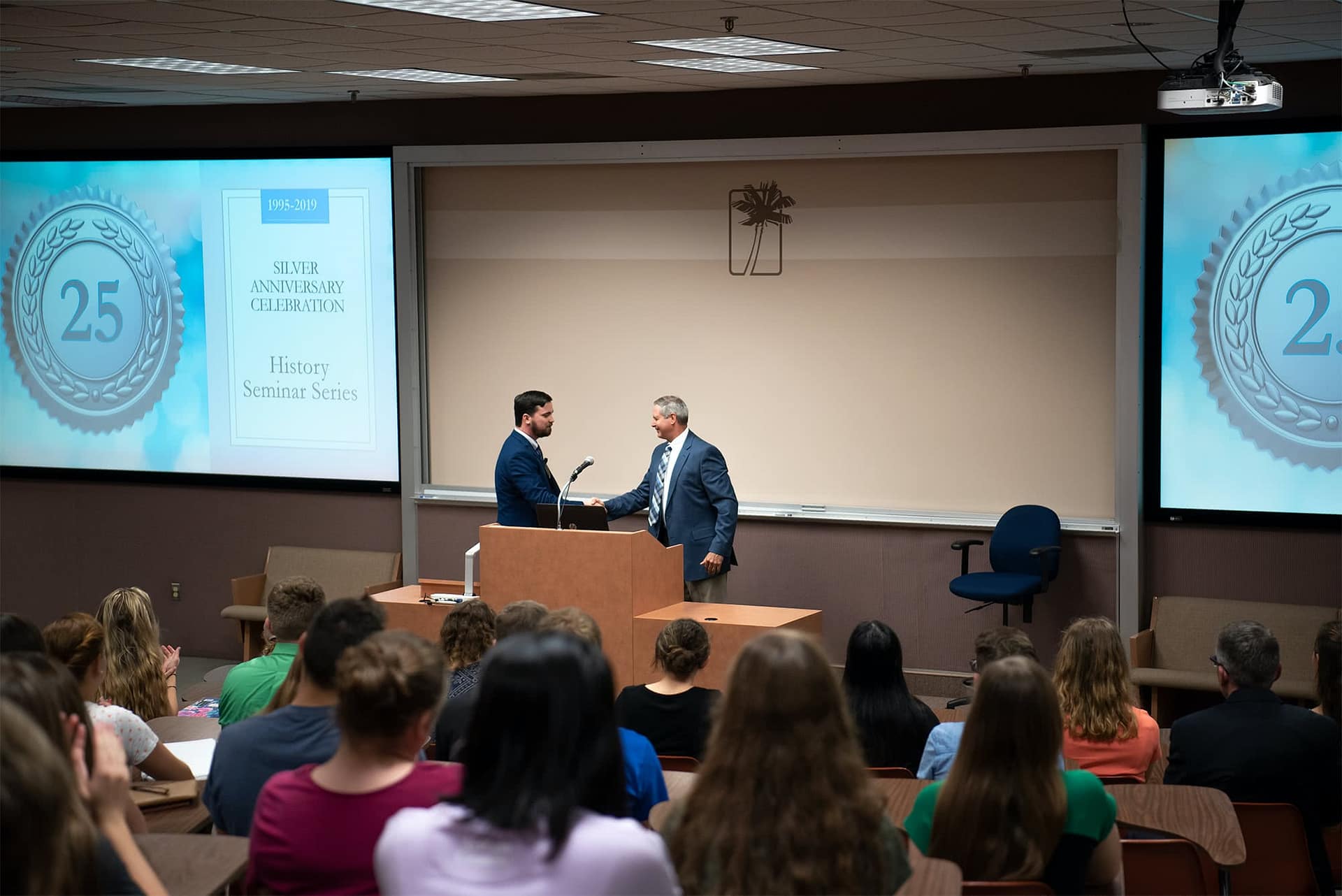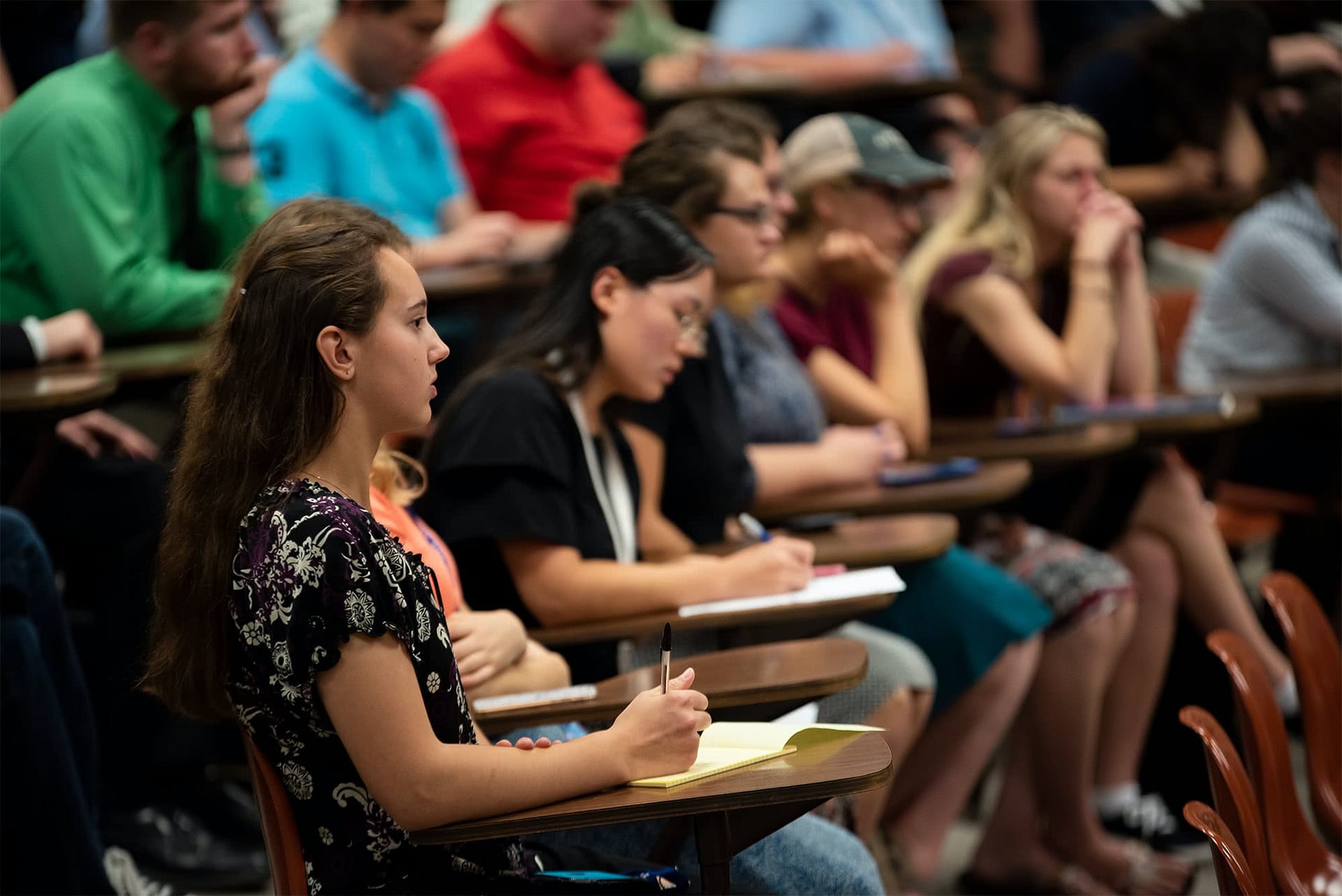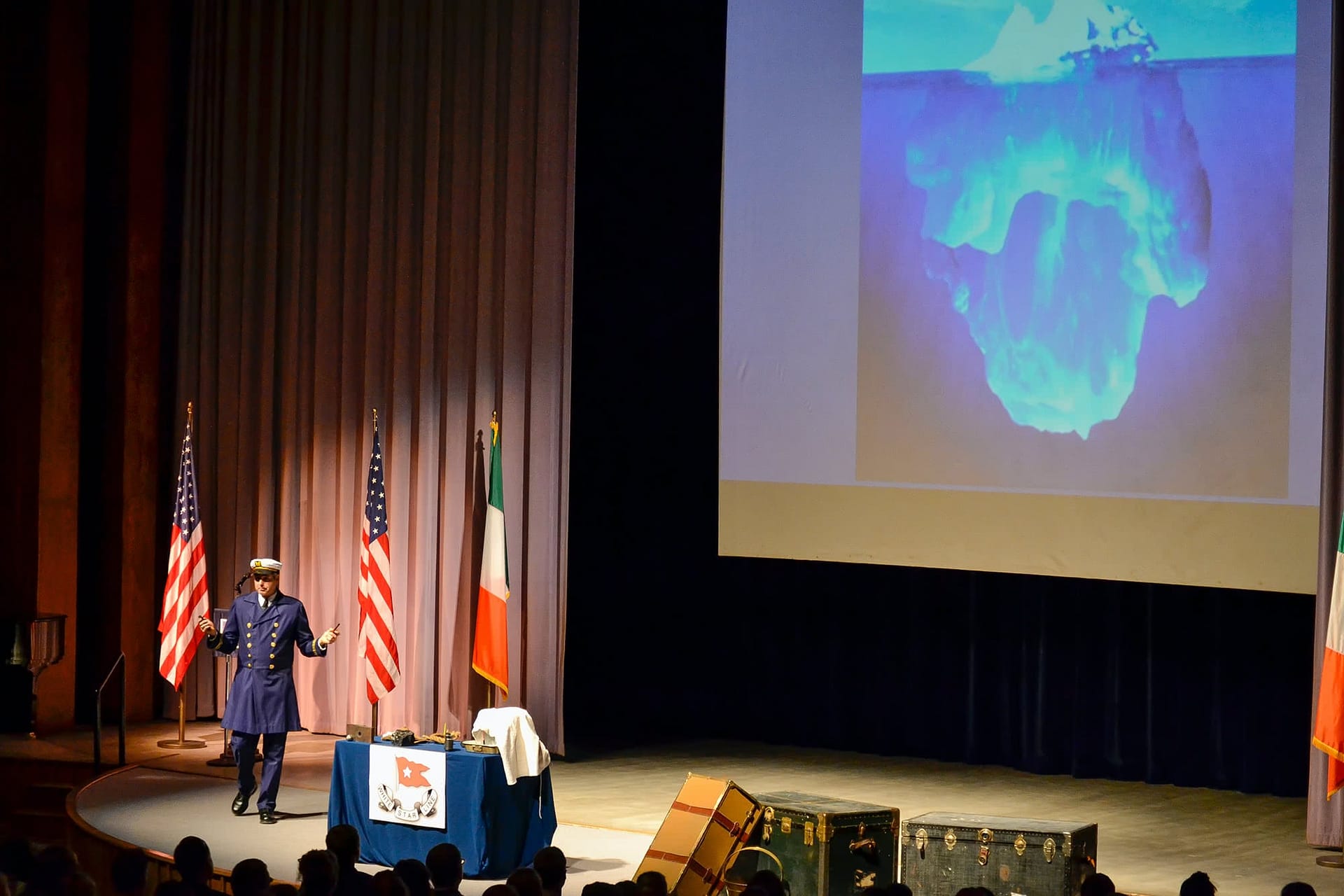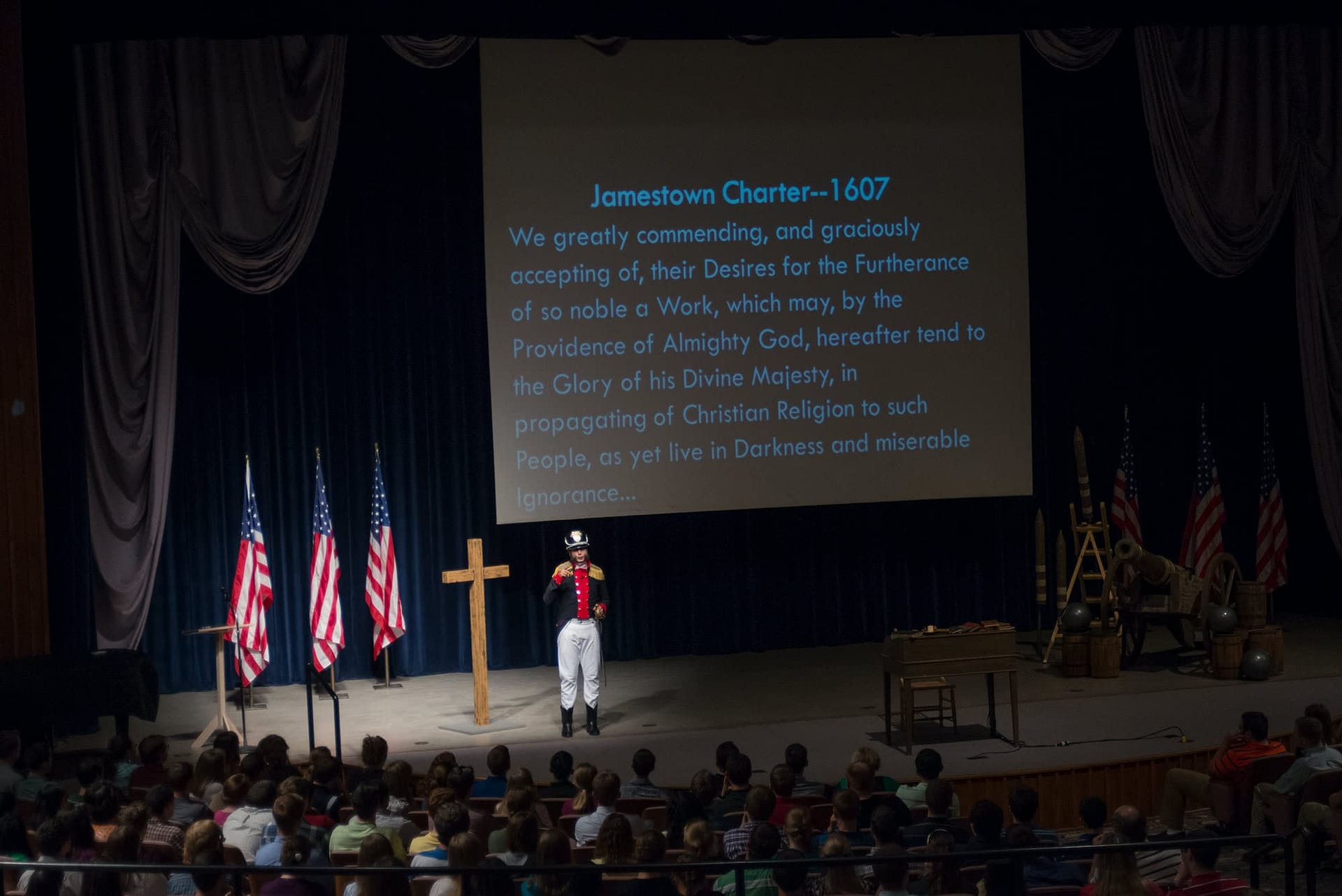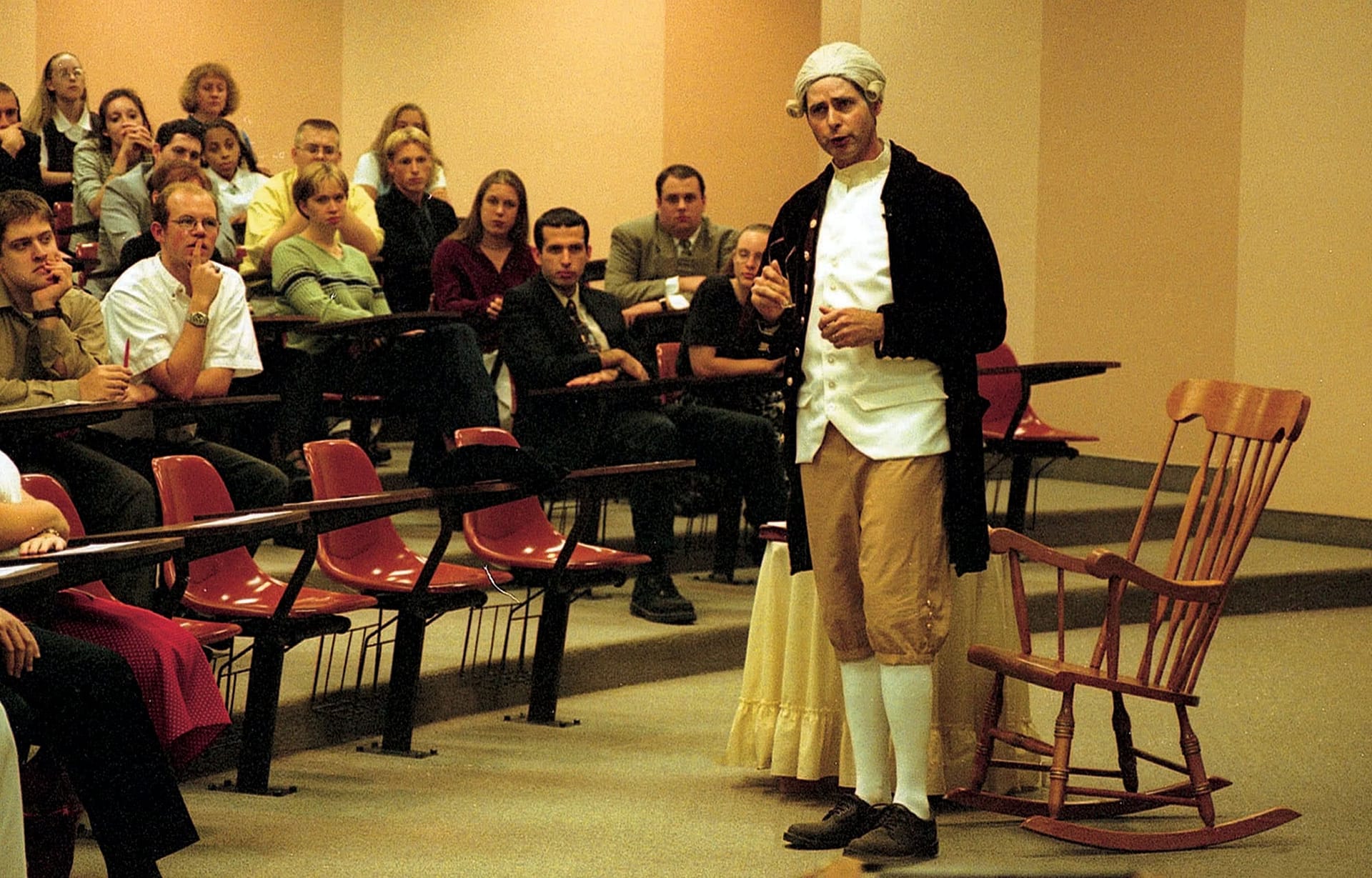Twenty-five years ago, history faculty Dr. John Reese approached Pensacola Christian College administration with an idea. He wanted to host a forum that featured guest speakers such as retired military heroes from the Pensacola area. “I gave three suggestions for topics, one of which was ‘The Flying Tigers: The Men, the Missions, the Machines,’ and that was the beginning of what has been a quarter century of exciting presentations,” he said.
That fall in 1995, the first History Seminar proved to be a popular event on campus, packing out the Multimedia Auditorium. “We crammed as many extra chairs in as we were allowed to and turned away a long line of people. We offered the seminar a second time in the Lyceum one week later,” Dr. Reese recalled. “In between presentations, a hurricane swept through Pensacola, so you could say the very first History Seminar stirred up a storm of sorts.”
For the anniversary seminar, Dr. Reese was grateful for history faculty Nathan Goodson’s presentation on Persia’s influence on Western civilizations. “Nathan volunteered to do a presentation last fall,” said Dr. Reese. “I was delighted when he chose the Persians since we had not done an ancient history topic in a couple of years.”
At the start of his presentation in the Lyceum, Goodson noted the topic’s significant relevance for this year. “It is, I think, altogether appropriate that, on our silver anniversary edition of the History Seminar, we’re talking about the group of people that the Book of Daniel identified as the silver chest and arms of history,” he began. “As we look back at the ‘Fingerprints of Persia’ and ask ourselves how the East has helped to shape the West, we want to see how it applies to us—how it has brought us to where we are today.”
While preparing for the History Seminar, Goodson was intrigued by observing God’s hand in history from a different perspective. “Studying Persia came with a very fun reversing of roles in a lot of the classic stories from Western History,” Goodson said. “One of my personal favorite things about studying history is seeing how God uses different peoples to serve His purpose: sometimes turning the ill intent of one group into a correction for another, sometimes leaving Himself with a powerful witness embedded in mythologies in far-flung corners of the world, sometimes intervening so clearly and vividly that it can only be explained as miraculous!”
During specific anniversary years of historical events, Dr. Reese, who is known for historical monodrama-styled presentations, had planned certain topics to be the focal point of the History Seminar. Some of these presentations have been livestreamed, reaching large international audiences as far as Papua New Guinea or New Zealand. These History Seminars included:
- 2003 “Centennial Celebration of American Aviation”
- 2007 “Captain John Smith and Jamestown: America’s Birthplace,” marking 400 years since the first permanent English settlement
- 2011 “What Hath God Wrought,” celebrating the 400th anniversary of the English King James Bible
- 2012 “Titanic: Tragedy and Triumph,” marking 100 years since the sinking of the Titanic
- 2014 “Forged by Fire,” celebrating the 200th anniversary of the Star-Spangled Banner
- 2017 “Here I Stand: the Life and Times of Martin Luther,” marking 500 years after the Protestant Reformation
By attending the History Seminar, students can enjoy hearing about different facets of history without the stress of a quiz or test taking place after. “It is so necessary for Christians to be students of history,” said Marie Thompson, chair of humanities who regularly attends the seminar. “History reveals both the negative and positive aspects of humanity, but the individual who learns from the past and who trusts in God’s providence has hope for the future despite the circumstances.”
“You know what they say, ‘You won’t know where you are going, if you don’t know where you have been!’ The world today is trying to rewrite and reinterpret history,” said history faculty Dr. Doug Zila. “We have the opportunity to take a topic that has mass appeal, and demonstrate the biblical worldview of the event. We want to take the opportunity, through the seminar, to point people to Christ, the focal point of all history.”
Planning the History Seminar is a department-wide event, pooling together the creative gifts of the history faculty to plan presentations. “We encourage history faculty to volunteer to present,” Dr. Reese explained. “Typically, we discuss possible topics at least a year in advance at our history/political science curriculum meeting and ask for volunteers. We like to lock in a presenter and topic nine months in advance, when possible.”
“The History Seminars are truthfully a family affair for the department! We all get very excited about these presentations and everyone chips in to help the presenter any way we can,” said Dr. Zila, who presented “Countdown to Blastoff: An Overview of the American Space Program” in 2010. “Whenever I walk into the Lyceum to help get things ready, all of the memories come flooding in. After 25 years, it is very nostalgic for me. It is one of the great things I remember about the seminars.”
After 25 years of History Seminars, a wide variety of topics have been covered, but surely more will follow in the years ahead. “I approached the administration about our hosting an evening session which could capture the drama of history without the quiz to follow,” said Dr. Reese. “Little would I have guessed it would blossom into what it has—to God be the glory!”

